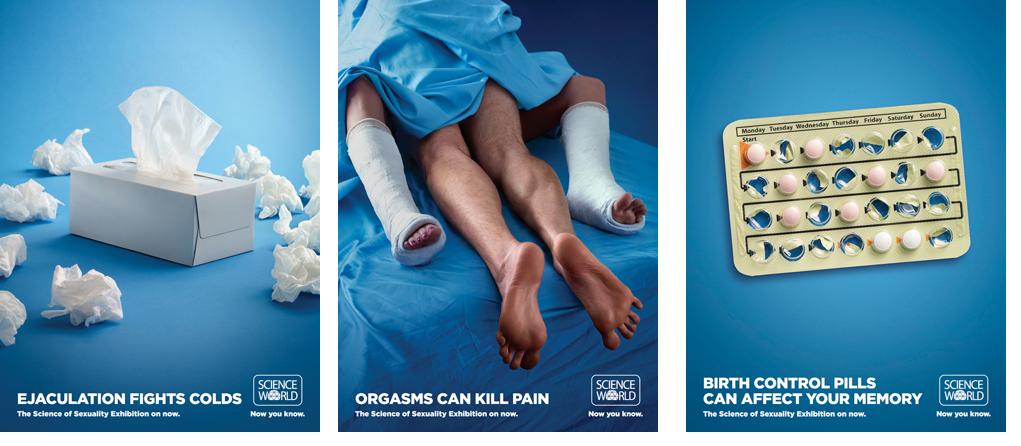TORONTO – The same week two sexy Science World ads were banned from Vancouver bus stops, Toronto launched a museum campaign that features “WTF” on the city’s public transit shelters.

So should parents be concerned that sex and (implied) swear words are increasingly being used in advertising to appeal to teens?
City of Toronto Museum Services Program Designer Ilena Aldini-Messina says there has been mostly a positive response and very few complaints from people she assumes are parents, saying they dislike the ad “because of their children” in online feedback.

“The other comments were they didn’t appreciate the acronym, which we used it as a playful attention grabber: we’re using it as ‘what the artifact’ or ‘what the fact?’” she explained, rather than the more commonly used crude meaning.
Parenting author and mother of four Ann Douglas calls the Toronto WTF ad “fun and provocative” and says even preschoolers probably know the expression.
“Twenty-five years ago, when my daughter started kindergarten…little kids were using the F-word then, and I was totally shell-shocked,” she said. “So you’ll actually surprise them and teach them that WTF doesn’t have to mean what they think it means… and it’ll get them being curious. And that’s actually what museums are all about, so it’s actually a really smart and fun ad.”
In reaction to the Science World campaign, Douglas says if you’re old enough to read the word “ejaculation,” you’ve probably had some sex education already.
“If you have a precocious Grade 1 who sounds out ‘e-jac-u-la-tion’ and says, ‘mommy, what’s ejaculation?’ Well then it just opens up the conversation for Sex Ed and I don’t think that’s such a big deal,” she said. “The only kind of ads that I worry about are those that sexualize young children – so none of these ads go into that territory at all.”
Queen’s School of Business Associate Professor of Marketing and Innovation John-Kurt Pliniussen agrees that the ads aren’t going as far as other material available to teens and doesn’t think this tactic is a recent trend.
Pliniussen says using similarities to swear words or sex in marketing is nothing new: some were shocked when clothing company French Connection started using the “fcuk” branding in 1997. Pliniussen also pointed to the 1980 Calvin Klein jeans commercial that came under fire for sexualizing a then-15-year-old Brooke Shields .
“Is it too much below the belt?” he asked. “That’s up for consumers to decide. Because there is no law that everything must be above the belt…If people are truly offended –people will not show up.”
Pliniussen suggests the main flaw in the Science World ad is that there is no call to action, and thinks Toronto’s WTF campaign—which asks people to take cellphone pictures and submit them on Facebook with a guess at identifying artifacts also shown on the ad—is a step in the right direction.
“Do I think it’s inappropriate? No. Do I think they could have done a more interesting, clever job? For sure,” he said, suggesting a contest where kids had to come up with different words WTF could stand for related to the historical site or museum in question. “Then you could have had some fun with the WTF.”




Comments